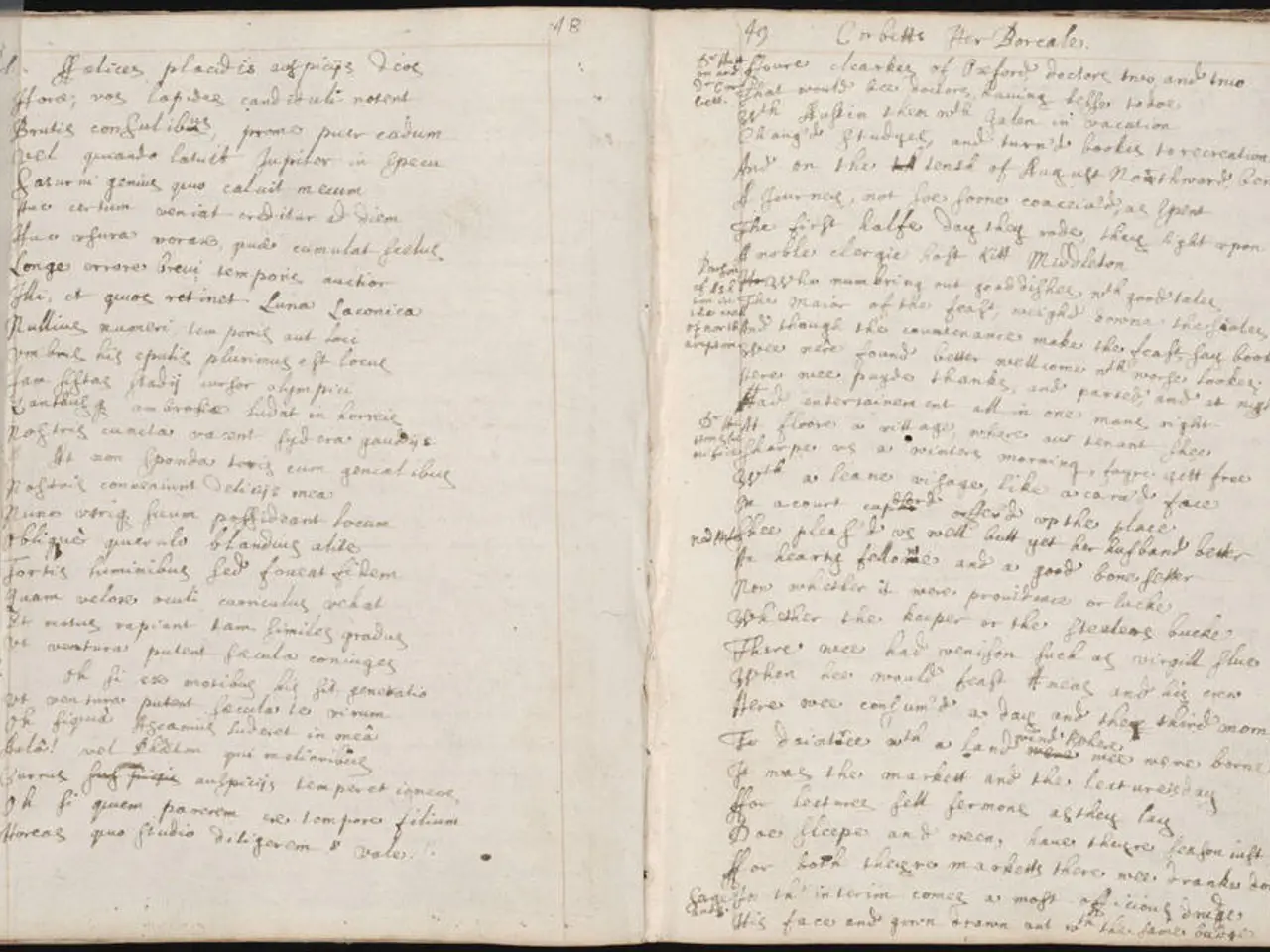Development of Mental and Intellectual Abilities: TOK Focuses On
Theory of Knowledge (TOK) is a subject that focuses on critical, reflective, and ethical thinking. To excel in TOK, learners can adopt various strategies to develop essential skills such as questioning assumptions, structuring coherent arguments, and reflecting ethically.
Self-Directed Learning and Reflection
Encouraging learners to set specific learning goals, engage in regular reflection, and adjust their strategies promotes deeper understanding and ownership of TOK skills. Offering a variety of learning materials, such as videos, articles, and discussions, supports diverse learning styles and fosters engagement in questioning assumptions and structuring arguments [1].
Inquiry-Based and Collaborative Learning
Using inquiry-based methods where students formulate their own questions encourages active exploration and independent thinking, key for questioning assumptions. Collaborative learning further promotes critical evaluation of knowledge through peer exchange and helps develop broader perspectives, reinforcing ethical reflection [3].
Use of Real-World Examples and TOK Concepts
Applying TOK vocabulary and concepts to contemporary issues, such as debates involving conflicting knowledge frameworks (e.g., evolution vs. creationism), helps learners practice constructing and evaluating arguments while reflecting on ethical and epistemological tensions. Incorporating visual stimuli and role perspectives enhances engagement and critical analysis [2].
Ethical Reflection and Awareness
Encouraging reflection on the ethical implications of knowledge claims, particularly in contexts like public health or misinformation, helps develop ethical sensitivity vital for TOK. This can be supported by prompts and structured discussions focused on reliability, justification, and global implications [2].
Continuous Learning Culture and Supportive Environment
A learning culture that values ongoing growth and provides supportive, reflective spaces enables mastery of TOK skills over time. Recognition and support from educators and peers encourage persistence and depth in critical thinking and ethical reflection [1][3].
TOK Resources on RevisionDojo
To level up TOK mindset and writing, visit RevisionDojo for expert blogs, real TOK examples, and Jojo AI-powered help. TOK-specific resources and planning templates are available, along with blog tutorials on TOK thinking and structure. RevisionDojo offers tools like Jojo AI to generate essay ideas and commentary drafts [4].
Moreover, RevisionDojo provides sample Knowledge Questions and prompts to help you frame powerful, open-ended questions. For the TOK essay, you should have a clear introduction and thesis, analyze claims and counterclaims, integrate AOKs and WOKs, and write a thoughtful conclusion [5].
In summary, mastering TOK skills involves a blend of self-directed learning, inquiry, critical thinking activities, real-world application of TOK concepts, ethical reflection, and a supportive learning environment that values continuous growth and diverse perspectives. These strategies collectively build the essential skills of questioning assumptions, structuring coherent arguments, and reflecting ethically.
[1] Hodson, G., & Sternberg, R. J. (2004). Theoretical foundations of self-directed learning. In R. J. Sternberg (Ed.), Handbook of self-directed learning (pp. 23-40). Routledge.
[2] King, A. (2013). Ethical inquiry in theory of knowledge: A guide for IB teachers. IB Publishers.
[3] Ritchhart, R., Church, M., & Morrison, K. (2011). Making thinking visible: How to promote engagement, understanding, and independence for all learners. Teachers College Press.
[4] RevisionDojo. (n.d.). Theory of Knowledge Resources. Retrieved from https://www.revisiondojo.com/subjects/theory-of-knowledge
[5] International Baccalaureate Organization. (2019). Theory of Knowledge: Guide for teachers. IB Publishers.
Engaging in self-directed learning by setting specific goals, reflecting regularly, and adjusting strategies allows for a deeper understanding of essential TOK skills such as questioning assumptions, structuring coherent arguments, and ethical reflection [1]. Adopting inquiry-based methods encourages active exploration, independent thinking, and questioning assumptions, thereby promoting the key TOK skill of critical evaluation [3].
Online resources like RevisionDojo offer expert blogs, TOK-specific templates, and AI-powered tools to help students practice developing and evaluating arguments, constructing clear introductions and theses, analyzing claims and counterclaims, integrating AOKs and WOKs, and writing thoughtful conclusions [4,5]. These activities further foster the TOK skill of ethical reflection by applying TOK concepts to contemporary issues and engaging in structured discussions focused on reliability, justification, and global implications.




